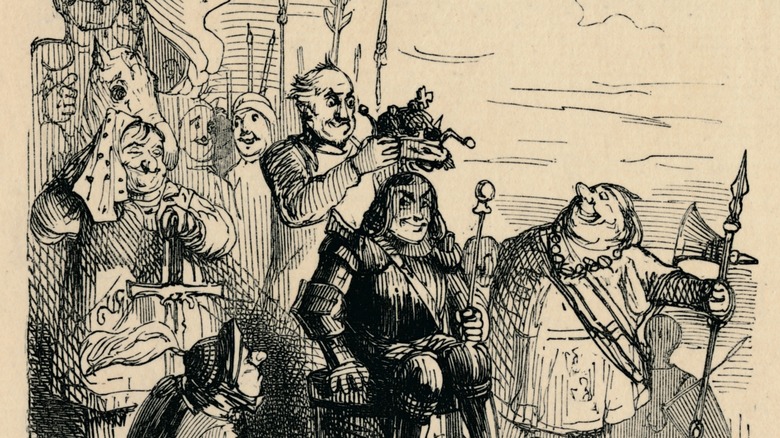Inside The Paranoid Mind Of King Henry VII
As with all kings who took their thrones through conquest, the reign of Henry VII (1457-1509) began, on paper at least, in a blaze of glory. By defeating the reigning Richard III at the Battle of Bosworth on August 22, 1485, Henry was able to install himself as the head of the English monarchy. The move was a decisive step in bringing to a close the War of the Roses, a civil war between the Houses of York and Lancaster that had been tearing the country apart for three decades (per Britannica). Following his accession to the throne, the Lancastrian Henry married Elizabeth of York, a controversial move, but also one which ultimately saw him consolidate power and help bring the civil war to an ultimate end. But when it comes to the English throne, nothing is easy.
Henry had a problem, one which was dramatized by William Shakespeare in his "Henriad," the four plays that outline the power struggles, falls, and risings of Henry's predecessors Richard II, Henry IV, and Henry V. In particular: How can a king who has taken the throne through conquest demonstrate that his monarchy is legitimate? Like Henry VII, Henry IV had claimed sovereignty through the slaying of a previous monarch, becoming a traitor before ultimately succeeding in his aims. And as Shakespeare knew, not only does this make the king's "divine right" to rule suspect to the outside world, but also inside the head of the monarch himself.
Henry VII's ruthless paranoia
Gaining the throne through conquest meant that Henry VII's legitimacy was always in question. And although he united the two warring houses through his marriage to Elizabeth of York, the threat of old enemies never seemed far away.
According to The Infographics Show, Henry was even paranoid that his own wife might turn against him and murder him to reclaim the throne exclusively for the House of York. The machinations of Henry's predecessor also fed into Henry's paranoia. While Richard III had been installed as regent rather than king, he locked his two nephews — who were in first and second in line to the throne when they came of age — in the Tower of London. They disappeared soon afterward, and many suspected they were murdered. Henry realized how little sovereignty mattered to those who would seek power for their own ends, while the specter of the missing princes also instilled the idea in the general populace that the lawful king was missing. When a man claiming to be Richard of York — a lawful prince — emerged, he attracted many followers, though Henry crushed the rebellion. Henry had numerous other claimants to the throne — including his wife's own cousin, Edward Plantagenet — executed.
Henry lost his eldest son, Arthur, to an illness. However, their second son would secure the succession and take the English throne in 1509 to become Henry VIII.

